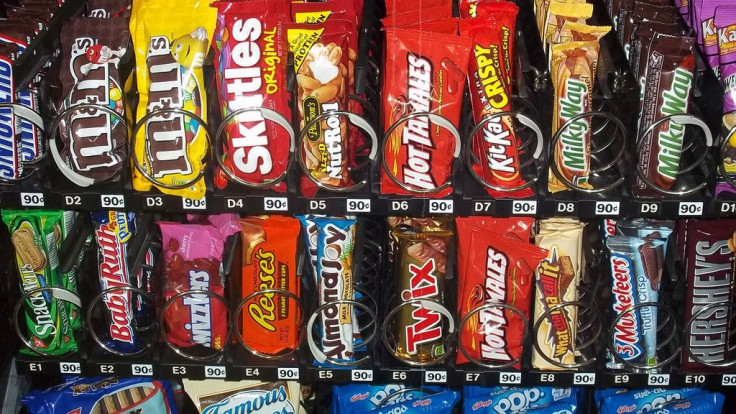Countries Ban TV Ads For Unhealthy Foods Aimed At Children, But The Shows Themselves Are Just As Bad

When I was a boy, my mom called me a "mush head" if I sat in front of the television too long. Her suggestion was that unenlightened programming was rotting my brain. But piles of research conducted since the 1980s shows TV isn't making them dumb — it's making them fat.
On Thursday, pediatrists in Britain unveiled new insights into the mechanics of one of the facts of childhood obesity: The more a child watches television, the more likely that child is to be overweight. While it's still largely unclear why that's the case, a number of governments, including in the UK and several Scandinavian countries, have banned junk food ads targeting children. But sugar's sweet temptation is still reaching them, say the authors of the new study, through the shows themselves.
"We suggest that parents, policy makers and physicians should be aware of the frequent portrayals of unhealthy food and beverages in a positive light in children's television programming," wrote the authors, led by Paul Scully of the University Hospital Limerick in Ireland. The shows are full of depictions of sugary drinks and high-calorie snack food, often in the context of happy celebrations or satisfying hunger. Seldom are the characters fat, shielding kids from the possible consequences of an unhealthy diet.
Although their study, published in the journal Archives of Disease in Childhood, does not link these depictions to weight gain, other scientists have spent decades establishing that connection. Most major studies have shown "children who spend more time with media are more likely to be overweight than children who don't," according to a 2004 Kaiser Family Foundation report on television and obesity. These include one paper that found "the odds of being overweight were 4.6 times greater for youth watching more than 5 hours of television per day compared with those watching 0-1 hours."
Is that because they're spending time watching TV instead of exercising? Or is it because being bombarded with advertising and depictions of poor nutrition are influencing their diets? Expert consensus seems to suggest it's a bit of both, but maybe more of the latter. In the same way children are extra susceptible to camels selling them cigarettes, they're easily won by fast food placements and cola commercials. The Supreme Court has said children are "uniquely vulnerable" to advertising, suggesting some kinds of ads may not be protected by the First Amendment.
In the U.S., outright bans on junk food commercials haven't happened to the degree as in other countries. (The Federal Trade Commission wields authority on which commercials are and aren't allowed.) Sweden, Norway, and Finland probably have the strictest laws, which outlaw commercial sponsorship of children's programming altogether.
But advertising isn't the only source of persuasion. By logging more than 80 hours of kids TV shows in the UK and Ireland, the authors of the new study have completed one of the few careful analyses of the programs themselves. They created a database of every reference to food and tagged each reference for the type of food, the characters involved and any indication of the repercussions of eating it.
Their findings: Sweet snacks and candy were the two most popular kinds of food, and sweet drinks were the second most popular beverage, behind tea and coffee. More often than not, the food reference was positive, not negative. "Future children's television programmes should address this," they write, "by including frequent and positively associated connotations with healthy foods and behaviours."
Source: P. Scully et al. Food and Beverage Cues in UK and Irish Children-Television Programming. Archives of Disease in Childhood. 2014.
Published by Medicaldaily.com



























